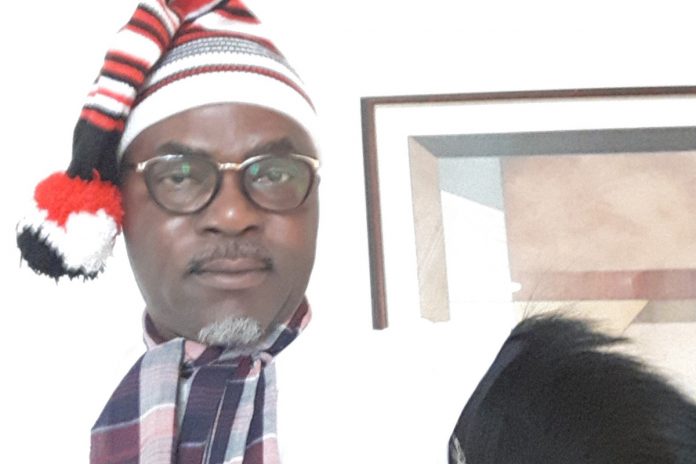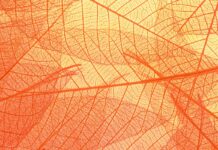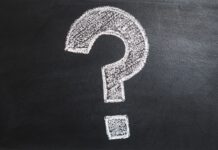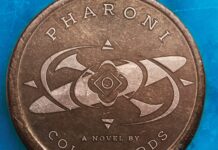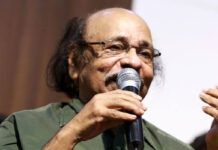By Rajesh Subramanian
Ikeogu Oke is one of the best known faces of contemporary Nigerian and African literary world. He won the Nigeria LNG’s prestigious Prize for Literature (2017) recently. A journalist, Oke is an alumnus of both the University of Calabar and the University of Nigeria, Nsukka. In this comprehensive interview to Modern Literature, Oke brings to the fore various facets of modern Nigerian literature :
What are the major themes of modern Nigerian literature? In what form – fiction or poetry – are the modern literary works very successful?
All written Nigerian literature is modern, having originated a few decades before the country’s independence won from Britain in 1960. The themes reflect a wide variety, ranging from the autobiographical to the political and to the cultural. And this list is by no means exhaustive. Two of the most renowned Nigerian writers have written memoirs which one may regard as having high literary value. Wole Soyinka has Ake and the most recent You Must Set Forth at Dawn in a genre in which he has proven to be an indefatigable practitioner. Chinua Achebe, not long before his demise, published the highly successful There Was a Country: A Personal History of Biafra. This work reflects a close affinity with literature by its chapters being introduced with a poem by the author. The cultural themes are pervasive across the genres, with literature as an essential vessel for the preservation and transmission of culture. And so are the political themes, Nigeria being a country where politics determines virtually everything, and so its writers understand that ignoring politics could be tantamount to showing lack of commitment to their nation’s improvement. Achebe’s Things Fall Apart and Arrow of God draw heavily on Igbo culture. So does Soyinka’s Death and the King’s Horseman on Yoruba culture, and J. P. Clark’s Ozidi Saga on Ijaw culture, and several works by writers from Northern Nigeria which draw from that culturally diverse landscape. And one must not fail to mention Flora Nwapa, whose Efuru is an intimate exploration of the culture of her Oguta people with emphases on matrimonial issues as they impact women.
Modern Nigerian literary works are very successful in all the genres, depending on our parameter for measuring success. If it is critical global acclaim, for instance, it has won it through the works of writers like Chinua Achebe, Chimamanda Ngozi Adiche, Helon Habila and Chika Unigwe (in fiction), Wole Soyinka, J. P. Clark, Ola Rotimi and Femi Osofisan (in drama), and Gabriel Okara, Christopher Okigbo and Niyi Osundare (in poetry). Beyond critical acclaim, Hubert Ogunde’s plays were so successful in material terms that he left his career with the police force for a career as a dramatist; and most of his plays, while proving to be aesthetic successes by their incorporation of dramatic action, music and dance, also successfully reflected contemporary social and political realities. These successes do not detract from those being achieved by other Nigerian writers, especially of the younger generation, at home and in the diaspora, exploring diffuse themes in their works of poetry, fiction, drama and the short story. Some of these younger writers have made a strong point of their desire to deviate from the assertive pan-Africanism of some of the pioneers, and are cutting new swathes of original and interesting writing through the landscape of the country’s literature. They include the likes of Wale Okediran, Okey Ndibe, Abubakar Adams Ibrahim and Toni Kan.
What has been the influence of ancient mythology on modern Nigerian story telling? What are the unique characteristics of Nigerian, for that matter, African story telling?
Soyinka’s oeuvre is replete with reverential treatments of the gods in the Yoruba pantheon. Some even refer to him as a worshipper of Ogun, which he counters as a misinterpretation of his type of affinity with the Yoruba god as reflected in his work. Achebe writes incisively about chi, the concept of personal god in the Igbo worldview, in his Things Fall Apart and his other works. Clark’s Ozidi Saga pays tribute to Ijaw myth. Okara’s “Fisherman’s Invocation”, a title that signifies a religious rite, pours libation to an idea that is both religious and myth-oriented. Okigbo’s “Idoto” projects a consciousness of myth awakened as vibrant poetry. All these, and many more, are examples of how ancient mythology has influenced modern Nigerian storytelling across the genres.
The unique characteristic of Nigerian and African story telling is largely related to its tendency to reflect what Achebe calls “applied art” as opposed to “pure art” in his essay “The Novelist as a Teacher”. By this is meant art, literature in this case, applied to solving problems of a social, political or other nature. In fact, we Africans seem to me to have a natural disinclination to doing things for their own sake, assuming it is possible do anything for its own sake. So the idea of creating “art for art’s sake” – assuming that suggests that absolute purity is realisable in the production of art – seems alien to us. And this reflects in the type of literature we create. It is often a case of when one thing stands another stands by it, to paraphrase an Igbo saying made popular by Achebe, a case of utility standing beside beauty. Of course one cannot ignore young writers of the current generation who say they just want to express themselves freely as writers, without such hang-ups, as they seem to see it, as to whether society might find their work useful beyond the usefulness of their giving aesthetic pleasure. But that they seek to frame their work under such new tendencies, wrestling as it were with the tradition in which aesthetics melds with utilitarianism, established by writers of the older generations, shows that they have yet to escape the influence of the tradition.
The general perception is that modern Nigerian literature focuses mostly on contemporary social issues like corruption, violence, education, freedom, etc. Do you feel that the writers have more scope to delve deep into other areas than those on which the so called “serious literature” generally lays stress?
That perception is right; and I do not think the focus is wrong. I think it is possible to produce good, even great, literature that focusses on such issues, if the writer has mastery over their material and method. Is that not what the likes of Alexander Solzhenitsyn, Pablo Neruda and some other non-African writers do so well in some of their work? But I also agree that the writers have more scope and should explore other areas. The most important thing, however, is that they should produce art of an enduring quality, beautiful, imperishable works, regardless of their themes or lack of one, assuming it is possible to write without a theme.
What themes dominate the modern literary works written in local languages – especially Hausa & Igbo? Works written in which language are read the most? The Nigerian literary works in English are they targeted at the local population or the international readers?
I happen not to be conversant with literature in local Nigerian languages except Igbo, my mother tongue. This is due to linguistic restrictions, as I am not literate in the other languages and so cannot objectively compare which language’s literature is most read. As for the dominant themes of Igbo literature, they include the Nigerian Civil War as in Isi Akwu Dara N’Ala and Juo Obinna by Tony Ubesie. Ukpana Okpoko Gburu, also by Ubesie, is on inter-tribal wars, once a recurrent phenomenon among the Igbo before the coming of the white man. Omenuko, arguably one of the most famous of the Igbo prose works, has the themes of commerce (a major preoccupation of the Igbo), slave trade and resilience. Nwa Ngwii Puo Eze, by Bertrand Osuagwu, has the theme of forgiveness. In all, the themes of Igbo novels, literature generally, tend to mesh, interdigitate, rather than manifest the type of hierarchy suggested by the word dominance. Nigerian literary works used to be clearly targeted at the local population, at least primarily. I recall reading an essay by Achebe, written in the 1960s, in which he showed by the number of his books purchased that the local population reciprocated well. By contrast Adaobi Tricia Nwaubani, the author of I Do Not Come to You by Chance, published an essay, “African Books for Western Eyes” https://mobile.nytimes.com/2014/11/30/opinion/sunday/african-books-for-western-eyes.html?referrer, in New York Times, in which she details the reasons why “African readers feel that African literature exists not for them, but for Western eyes”. And I agree with most things she says in that essay. Hardly anything African writers write today seems to be targeted primarily at the local population. And it is primarily due to a people losing their initiative, the ability to control their destiny and that of their stories, and seeming to have accepted that with resignation, if uncritically, with some African writers who are “favoured” by the consequences seeing themselves as special beings compared to those who are not.
Your choice of English to write your works – was it a conscious decision? Have you also published your works in your local dialect?
I have received all my formal education in English, the lingua franca of my country, as a legacy of colonial rule. English was therefore the language in which I was introduced to literacy and I did not have a choice at the point of introduction and had begun writing in the language with considerable facility, I think, before I possibly could. That said, I have since come to accept English as a very powerful, useful and dynamic tool for my literary expression. I can say that I am happy writing in English, a most resourceful language. So while my decision to write in English did not originate as a conscious one, I have adopted the language in a way that might be said to have turned it into a conscious decision. I have written about forty poems in Igbo, including musical poems with music scores and whatnot, that can form a full collection of poems with their English translations by me. One of the poems, “N’ihi Gi” (“For Your Sake”), was published in Happiness the Delight-Tree (2015), “An Anthology of Contemporary International Poetry” published by the United Nations SRC Society of Writers, New York, a group in the United Nations.
How is Nigerian literature received within Africa? And what has been the influence of literature from other African countries on the Nigerian literary scene?
Nigeria is regarded as one of the literary giants within Africa and the works of its writers have been very impactful across the continent since Amos Tutuola published The Palm-wine Drinkard in 1954 and Achebe followed with what might me described as the extraordinary achievement of Things Fall Apart in 1958. And we must not forget that Tutuola’s book, which I consider a work of raw genius, was a unique work in its own way, signalling a special contribution to African, in fact world, literature with its type of special English, something reminiscent of what Mark Twain does with English in Huckleberry Finn but different in the sense that it seemed more unconscious, more natural, than invented, unlike Twain’s, a contrast between the automatic expression of genius and its expression as craft. The works and achievements of Nigerian writers of later generations have tended to improve this respectability established by such pioneers. This is obvious when you consider the impact of the works of younger writers like Adichie and Habila and many others, some backed by prestigious international literary prizes. Literature from other African countries is equally well received in Nigeria, and with a rather unnecessary hint of rivalry. These include South Africa, Zimbabwe and Uganda.
What are the major challenges faced by Nigerian writers today?
There are attitudinal problems: Many writers engage in writing as a hustle rather than a vocation. This comes with the expectation of short-term material success and quick accolades based on low-quality writings. And frustration sets in when those expectations are not met, as they hardly are in reality. And so you have a lot of angry writers in the country, especially among the younger generation, impudent literary Absaloms who act as if writers of the older generations are standing in their way to literary success or fame, and as if they would not mind committing literary parricide against them and enthrone themselves on the country’s literary establishment. They seem more interested in becoming award-winning writers than good writers. There are institutional challenges: The structures that should support a vibrant literary vocation are very weak, from writerly alliances, to editorial services, to the publishing industry largely hamstrung by incompetence, to hardly existent financial support like grants from government and non-government institutions. All this makes the life of Nigerian writers a tough struggle. It is also partly responsible for their general inability to see writing as an occupation by which they can earn a decent living. Ms. Nwaubani offers more details in this regard in her essay to which I have referred.
What has been the influence of religion on Nigerian literature? Especially, the native religious beliefs?
Wole Soyika’s Jero Plays satirises some of the practices of what we refer to as white garment churches in Nigeria. Chinua Achebe’s Things Fall Apart and Arrow of God are replete with evidence of the influence of what one might call the native religion of the Igbo, from his exposition on chi and his portrayal of Chielo, the Priestess of Agbala, in Things Fall Apart, to his creation of Ezeulu, the High Priest of Ulu, as the hero of Arrow of God, a novel in which the observation of traditional religious rites plays a key role in resolving the conflict. Gabriel Okara’s poem, “Fisherman’s Invocation”, is a divination poem, redolent with religiousness. Kambili’s father, in Chimamanda Ngozi Adichie’s Purple Hibiscus, is a fervent Catholic, whose zeal partly informs his actions in the novel. All this is evidence that religion, including the native ones and their attendant belief systems, continues to be influential in Nigerian literature across generations, providing grist for the mill of satire, moral and cultural education, edification, the assertion of spirituality, etc.
Do you feel that Nigerian and African literature have been receiving adequate attention in the international literary world?
No. Because with the weakening of their institutions in the past several decades, Nigerians and Africans have progressively lost control of the means by which they can tell their stories and project them internationally in such ways as to attract such attention.
What have been the influences of Western literary and political theories (like Marxism, Existentialism, Post Modernism, etc.) on Nigerian literature?
Such influences are largely confined to the academic or critical study of literature. The influence of Marxism was particularly noticeable in the years of the Cold War, with some Marxist literary scholars operating in the ivory towers and beyond. But the sea change that was the collapse of the former Soviet Union seems to have brought an end to that brand of scholarly and literary interest.
Who are your favourite Nigerian and African writers? And among the modern writers outside Africa, who are your favourites?
For a Nigerian and African poet, it is Niyi Odundare. I find his poetry accessible, unpretentious, sage, and an engaging vehicle for the four main tendencies of commitment: social, cultural, moral, and political. For a Nigerian and African fiction writer, it is Chnua Achebe. His fictional and non-fictional works were for me an invaluable revelation of and an initiation into the beauty and intrigues of great literature. As an African, reading him was like a rite of passage. I also love the poetry of Dennis Brutus, Derek Walcott, W. B. Yeats, Rabindranath Tagore, Pablo Neruda and Seamus Heaney, and the novels of Gabriel Garcia Marquez and Arundhati Roy.
Would you be able to share with us your next literary project/plans?
I have completed a novel, New Jerusalem, and a new poetry collection, One Hundred Love Poems, in a form I call decades, by which I mean a poem of ten lines in a loose combination of free and bound verse. So there are one hundred decades in the collection. All love poems. Both have yet to be published. I am currently experimenting on a new genre of poetry I call photo-poetics, simply defined as a blend of photography and poetry. Ideally, in photo-poetics the photograph and the poem are so complementary that the poem relies on the photograph for its full comprehension; if you take away the photograph, the meaning of the poem unravels somewhat. I write new poems almost everyday. My Muse has been generous, even overindulgent, in recent times. My creative juices are in full flow. And I am immensely grateful for the privilege.


